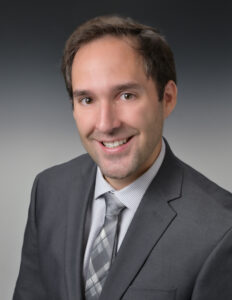 By: Chad Newell, CPA
By: Chad Newell, CPA
As a construction contractor, understanding the rules associated with consumer sales tax on real property in West Virginia is crucial for your business. Sales tax in the state can have a significant impact on both the pricing of projects and the overall financial planning for new construction or renovation work. West Virginia imposes a 6% sales tax that contractors are required to collect on both the services and material provided for each job, unless there is a specific exclusion for the work being performed. One such exclusion is if you are engaged in an activity that constitutes as a capital improvement.
What is a Capital Improvement?
A capital improvement is defined as any addition or alteration to real property that meets all three of the following requirements:
- It substantially adds to the value of real property or appreciable prolongs the useful life of the real property;
- It becomes part of the real property or is permanently affixed to the real property so that removal would cause material damage to the property or article itself; and
- It is intended to become a permanent installation or to remain there for an indefinite period of time.
Essentially, capital improvements involve projects for new construction, or that increase the value or function of a property in a long-term and significant way. These services are classified as non-taxable, and as such, no sales tax is required to be collected or remitted on the service labor. If a service fails to meet the definition of a capital improvement, it is classified as repairs and maintenance and you must collect sales tax from the customer on the labor for the job.
Sales Tax on Materials Used in Jobs
In general, sales tax should only be paid one time on the materials used in construction jobs. Either the contractor should pay sales tax to the supplier, or the contractor will collect the sales tax from the customer. Who pays the tax is dependent on what type of job is being performed.
- Capital Improvement Jobs
- Since capital improvement projects are exempt from sales tax, contractors do not collect or charge sales tax on the materials used in the job. Instead, the contractor is required to pay sales tax to the supplier for the job materials.
- If the customer buys the supplies directly from the supplier, the customer pays the sales tax to the supplier.
- Repairs and Maintenance Jobs
- Contractors are required to collect sales tax from the customer for labor and materials used in repairs and maintenance jobs. Since the sales tax is charged to the customer, contractors are able to buy materials used directly in repairs and maintenance jobs tax free.
- Contractors must obtain an exempt certificate from the state of West Virginia and present it to the supplier to buy the materials tax free.
Best Practices
Understanding the nuances of sales tax on capital improvements in West Virginia is essential for contractors to remain compliant and avoid unnecessary costs. Some of the best practices contractors can implement to manage sales tax are:
- Document everything: Keep accurate records of all materials purchased, labor charges, job classifications, and any claims for tax exemptions. Detailed documentation will make it easier to substantiate claims during audits or inquiries from the state.
- Keep a reference guide: The state of West Virginia has published TSD 310 detailing the capital improvement rules for sales and use tax. The publication contains several useful examples of what qualifies as a capital improvement vs a repair and maintenance. Contractors should keep an accessible copy of the publication to reference for sales tax determinations.
- Consult a tax professional: Because the rules governing sales and use tax for capital improvements can be complex, contractors should work with a tax professional to ensure they’re taking full advantage of available exemptions and ensuring full compliance with state law.
Suttle & Stalnaker, PLLC is ready to help. If you would like more information on how this applies to you, contact Bart Scott, CPA, CVA, MBA at bscott@suttlecpas.com. You may also contact Chad Newell, CPA at cnewell@suttlecpas.com.
